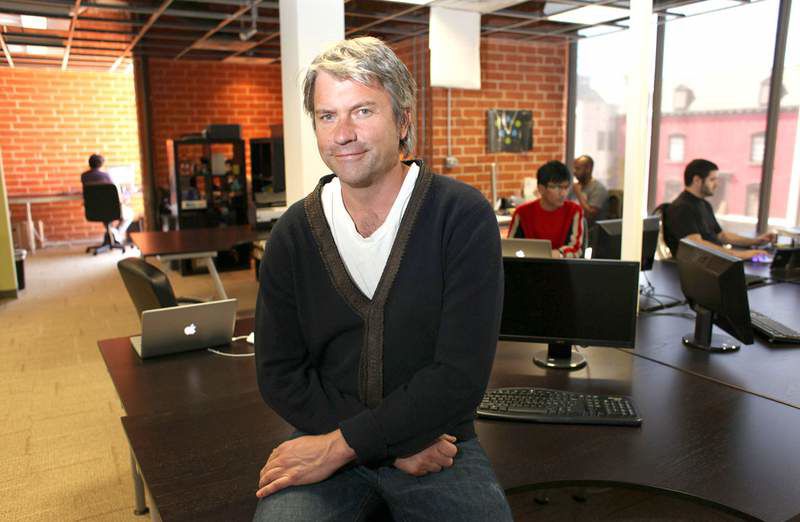Myspace founder starts over with online gaming company
Published 5:00 am Tuesday, April 19, 2011

- Chris DeWolfe, a co-founder of Myspace, is now running MindJolt, an ambitious upstart gaming company that has become profitable.
Just days after the online gaming company MindJolt moved into its Los Angeles headquarters in March 2010, rain started to pour through the ceiling.
Christopher DeWolfe, the chief executive, and his small team of engineers frantically grabbed towels and buckets to protect the computers.
“When you’re working with a big company, you’re used to having a facilities manager and assistant,” said DeWolfe, who bought MindJolt in March with the help of the venture capital firm Austin Ventures. “It reminded me that you have to dig in and you have to do a lot of work yourself.”
DeWolfe, 45, is a long way from his days at Myspace, the once-dominant social network that he co-founded and later left abruptly in 2009, a few years after it was bought by News Corp. Instead of a plush executive suite with a view of the Beverly Hills sign, he now sits two miles away, in a bare-bones office facing a parking lot.
He has also traded the challenges of a fallen social network giant for a small upstart at the beginning of its life. While Myspace continues to lose money, MindJolt, a profitable enterprise with more than $20 million in revenue and 20 million monthly users, continues to expand its base.
In the latest sign of its ambitions, MindJolt acquired two gaming companies last week, Social Gaming Network and Hallpass Media — effectively doubling its staff to 80 and adding mobile games to its stable of Web offerings. And more acquisitions will come, says DeWolfe, who is considered to be one of the many bidders weighing a purchase of Myspace, according to one person close to the deal, who asked not to be named because talks are private.
News Corp. ousted DeWolfe as the chief executive of Myspace in 2009, as revenue fell and Facebook rose. While Myspace was losing momentum when he left, it still had more unique visitors in the United States than Facebook. In 2008, the Fox Interactive division, largely Myspace, posted revenue of $856 million.
Since then, Myspace has tumbled spectacularly.
After losing the social media crown to Facebook in late 2009, Myspace hemorrhaged users and cash, prompting its parent company to cut its staff and, finally, put it up for sale this year.
Ambitious underdog
Although the capricious nature of the social Web led to the rapid descent of Myspace, its founders hope the same fluidity will work in their favor. MindJolt is an underdog in a multibillion-dollar online gaming market dominated by names like Zynga, the creator of Farmville, and Electronic Arts.
With its latest acquisitions, MindJolt is building its user network and breaking into the increasingly lucrative mobile entertainment market.
Hallpass Media, a gaming portal, will add 4 million monthly users and about 1,500 Web-based games to MindJolt’s portfolio. Its other purchase, Social Gaming Network, a creator of several popular iPhone and Android games (with 30 million downloads), will give MindJolt an edge in mobile devices. The deals will also push the gaming portal into the business of creating its own games, making it a closer competitor to larger, hit-driven studios like Zynga.
As young gaming companies like MindJolt rush into the market, some analysts say, it will be difficult for them to compete with well-capitalized giants.
Despite the challenges, DeWolfe is taking a lesson from his experience at Myspace as he moves forward with MindJolt. In a recent telephone interview, DeWolfe and Colin Digiaro, the chief operating officer and a fellow Myspace founder, were quick to offer a list of Myspace errors, including the early focus on revenue and undisciplined expansion. Since taking the reins at MindJolt, the team has invested heavily in an analytical technology that can measure users’ reactions to ad placements.
But DeWolfe says perhaps his greatest insight comes from selling Myspace to News Corp. in 2005, just two years after Myspace began — and all the distractions that came with being part of a public company.
“Facebook didn’t have an arm tied behind their back. They didn’t have the same pressure,” he said. “Myspace prioritized revenue and profits over user experience.”
That is not to say he wouldn’t consider selling MindJolt at some point.
“We’re are in no hurry with this one. We really want to get it right,” DeWolfe said. However, “If there was a right time and right price down the road — definitely down the road — we would look at it.”






